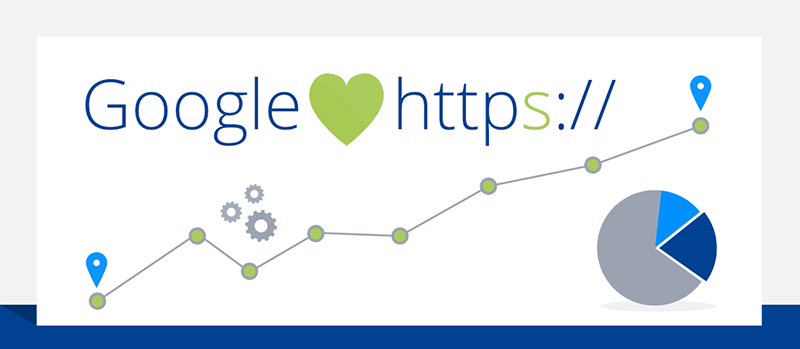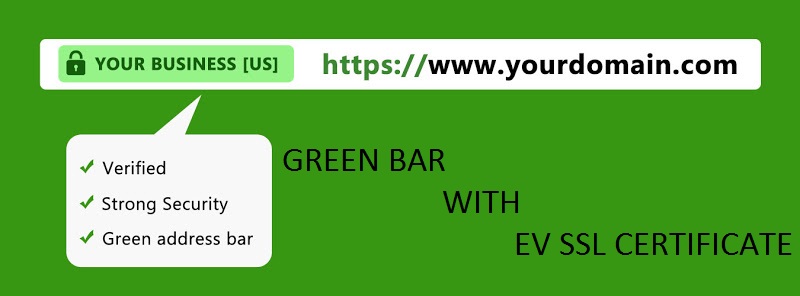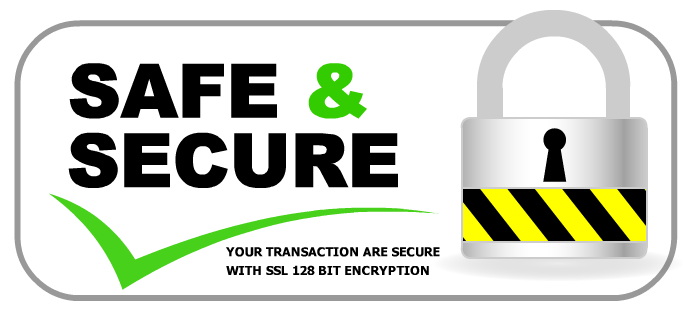
In the dynamic world...


You must hear this term SSL Certificate so much lately. In case you are collecting any sensitive information from your visitors such as email and password, and you want to prevent this information getting leaked to hackers for your visitor's data security than you will need to add SSL Certificate into your website.

Full form = Secure Sockets Layer Certificate
An SSL certificate is a digital certificate that ensures that all the information user adds on your website e.g. credit card numbers, banking details, login details, email addresses are securely encrypted so that it's safe from hackers and not compromised in any manner.
Secure Socket Layer is an important part of your website. SSL URLs open as HTTPS rather than simple HTTP and its presence is denoted in the top right-hand corner of the navigation bar by a padlock. This is a sign that any data you enter into the website will be secure. If you want to engender trust amongst the users of your website, then you need to get a SSL certificate so that your online store is up and running within minutes. And turns into a cash-generating machine with trustworthy shoppers on your site.
HTTPS would also boost the search engine ranking so you may consider having this for your blog as well.

Without having SSL Certificate, visitors data become vulnerable and customer's data is viewable by third parties. The Internet is shared and any information we input can easily steal. Website visitors do not want to get their data compromised and they trust sites that have SSL Certificate added.
SSL is important as it secures your data as it traverses computer networks and is important if your website stores passwords or personal information of users and not just credit card information. Getting a SSL certificate from a trusted SSL provider is important to setting up a PKI-public key infrastructure. And less chances of your site getting impersonated.

Securing customer data and all kinds of information which customers do not want others to know is the fundamental principle behind data security. Having SSL on your site ensures authentication as you want to be sure that whatever data you are sending is reaching the right recipient at the server end. To get a SSL, on your server you need to generate a certificate signing request(CSR). At the outset, you need to define the domain names and the server which will use your certificates. In case, its not your server and you are on a shared hosting plan, then identity documents confirming your ownership of the domain need to be furnished to get the SSL issued. Once the certificate is issued, an SSL certificate file will be released that you can install on your server.

https always look for the "S" sign as clever hackers can buy domains akin to your destination site and tempt you to punch your valuable details by cloning the site. Browsers have become very intelligent and if customers are visiting your site through a shared wi-fi or publicly shared computer working on fixed broadband then you might be presented with a warning that the there is a problem with the sites security certificate. And you should continue with caution.

With a 128 bit or 256-bit encryption in place, your customers can save their credit card numbers in their e-wallets with complete peace of mind as all information is encrypted and broken down into small packets as it is sent through the phone line to the bank server for authentication and approval.

Two factor or three factor authorization is generally put in place based on the following business logic. Asking customers, the following questions can help you confirm their identity.
(i) Something They Know: Usually a 4 to 8-digit alphanumeric password that confirms the first set of validation put in place by the webmaster.
(ii) Something They Have: One-time password sent to mobile and email for confirmation. An email is sent in case; the OTP does not reach in case of network issues.
(iii) Something They Are: Either a secret question or captcha or a security device that generates fresh codes in each login or a card with a grid assigning values to each alphabet in the grid.
A standard SSL certificate costs anything between $10 to $100 depending upon the host you have selected from your web hosting service provider.
To obtain an SSL certificate, you need to approach trustworthy certificate authorities that issue SSL certificates. They only do so to verified companies that have gone through several identity verification checks. EV SSL certificates need more validation than others and need more identity checks. Presently, web browsers indicate to users that SSL providers are following international security protocols audited by a third-party standard like
Paid:
Verisign
Comodo
Godaddy
Thawte
Geotrust
RapidSSL
There are free SSL certificate providers also to save $$$.
Free:
Lets Encrypt
Cloud Flare
Startcom
WoSign
SSL for Free
Zero SSL
Each Paid SSL certificate comes with installation support, money-back guarantee and round the clock customer support.
Please DON'T forget to share or Comment below ;)
Creative Head

In the dynamic world...

In t...

In the dynamic landscape of online conten...

In the world of web and app de...

In the ever-evolving world of web development, staying up-to-date with the latest technologies and frameworks is...

In the world of software development and deployment, efficiency, consistency, and scalability are paramo...

